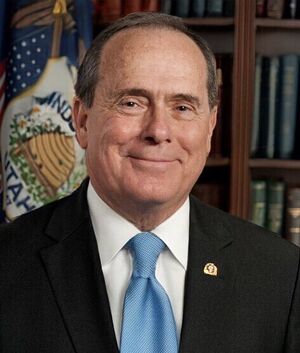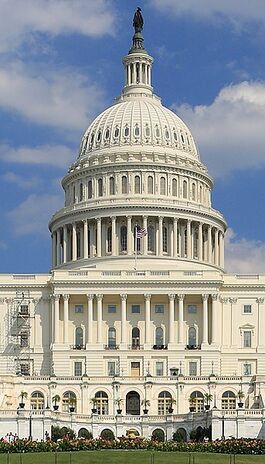Dawson Abernathy
This article is incomplete because it is pending further input from participants, or it is a work-in-progress by one author. Please comment on this article's talk page to share your input, comments and questions. Note: To contribute to this article, you may need to seek help from the author(s) of this page. |
Dawson Abernathy | |
|---|---|
 | |
| 13th and 16th Governor of Utah | |
| Assumed office January 5, 2009 | |
| Lieutenant | Oscar Stromer |
| Preceded by | Ron Fishman Jr. |
| In office January 7, 1985 – January 6, 1997 | |
| Deputy | Tom Gordon-Lynn |
| Preceded by | Scott M. Matheson |
| Succeeded by | Mike Leavitt |
| Speaker of the Utah House of Representatives | |
| In office January 5, 1981 – January 7, 1985 | |
| Preceded by | Oliver Isgro |
| Succeeded by | Charles Stephens |
| Member of the Utah House of Representatives | |
| In office January 8, 1973 – January 7, 1985 | |
| Preceded by | Jackson Dengle |
| Succeeded by | Wesley Anderson |
| Personal details | |
| Born | Dawson Frederick Abernathy March 15, 1932 Savannah, Georgia, U.S. |
| Political party | Republican |
| Children | 1 |
| Residence | Governor's Mansion |
| Education | University of Mississippi (BS in Mechanical Engineering) |
Dawson Frederick Abernathy (born March 15, 1932) is an American Politician serving as the current 16th Governor of Utah since 2009. A member of the Republican Party, he served in the Utah House of Representative from 1972 to 1984 and as the 13th Governor of the state from 1985 to 1997.
Abernathy was born and raised in Georgia. He is a graduate of the University of Mississippi and moved to Salt Lake City, Utah. Before entering state politics, Abernathy was an engineer at various factories and railroad companies in the mid 1950's until the early 1970's. He ran for the state house in 1972, being elected with a comfortable margin where he led the move to create Utah's Rainy Day fund and advocated for school voucher systems. In 1981, Abernathy was announced as the Speaker of the Utah House of Representative where he initially worked with the Matheson administration until obstructing the administration's agenda after announcing his first bid for governor. He won in 1985 and expanded early childhood programs, established insurance reform, and created the first flat tax rate. After winning reelection two more times, Abernathy served briefly as the Special Economic Advisor to the President from 2003 to 2004 in the Burke administration. He returned to the governorship in 2009 during the financial crisis and championed economic reform as well as new harsher social policies. He won his fifth and sixth term in 2012 and 2016 by 30+ and 40+ points respectively.
Abernathy plans to contest the 2020 Utah Gubernatorial election for a record seventh term as governor. He has passed executive orders related to banning Confucius Institutes and deporting Chinese officials in the state, expanding federal funding definitions, and supporting various socially conservative legislation.
